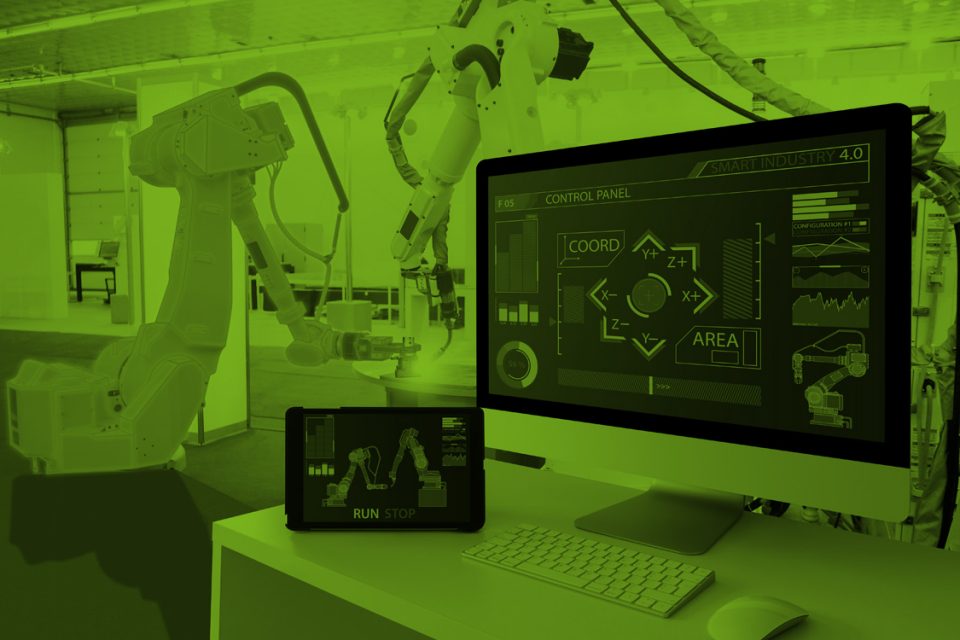
The last article analysed the digital transformation and in what way the industry is already relying on smart products and services. The goal with this is always to secure and expand your business model. In the industrial world, the customer is the main incentive to development. Here, the individualisation of products, lean and cost-efficient production and the simplification of processes, such as placing an order, come to mind. The result of this development is the realisation that, sooner or later, everything that can be digitalised will be digitalised. For example, forecasts predict that already in the next year, 47 percent of business revenue is going to be generated by digital business activities. This, again, illustrates that the digital transformation will lead to a drastic change in production and processes, as well as in the working and private life.
What kind of business models are being developed by the industry?
But what exactly does this change look like? What is the foundation for industrial success? It’s all about the widespread use of sensors. They gather required data and provide you with the necessary information. In this context, experts use the term Data-Driven Business Models (DDBM) – because only the acquisition of reliable data opens up previously unknown possibilities for gaining knowledge and thus improving existing processes and developing new business models.
This makes it possible, too, to concatenate the value chain between customers and partners. Not only can a customer send their desired specifications directly to the supplier‘s machinery, but the current reaction to market developments does also no longer pose a problem. In turn, the machinery is able to order the needed parts from the warehouse. Variant manufacturers, on the other hand, benefit from the fact that the delivered components themselves report which variant is to be produced. A cost-intensive manual setup is no longer necessary.
But not only the production benefits from this. Another relevant topic is “intelligent service”. In the Industry 4.0, this means predicting when a machine needs maintenance or repair (Predictive Maintenance). Smart products notify you in time of impending failures and maintenance can be carried out proactively. Or a machine notifies the manufacturer that a spare part needs to be installed within a pre-defined period of time to avoid production downtimes. The smart system thus reduces both the number of machine malfunctions and the maintenance costs, as well as regular inspections by special personnel.
Strategy matters, not technology
Looking at these experiences and developments, one might get the impression that the challenge of facing the digital transformation solely lies in technology. Far from it! What really counts is your strategy. Only when I know which goals I want to attain, where the opportunities for me and my company lie and how I can approach them in the next step, will I be able to make the necessary business decisions.
While pioneers in the industry are already optimising their processes, making their products customisable and developing new business models, some parts of the competition are increasingly falling behind. As a rule of thumb for the digital transformation: Either I digitalise or I will get lost in digitalisation!
Hospitality Industry – Focusing on Expansion and Development
The hospitality industry needs to learn from this approach if it does not want to be thrown around on the whim of market participants, but instead would like to inspire, convince and win customers by showing its own initiative.
Today, it is more urgent than ever to adapt to the current zeitgeist. Thanks to the digital transformation, this industry has and will have new opportunities in the future to revise and optimise its existing services. In particular, this could mean to customise and develop new services on offer on the basis of previously gained information. But not only the services and in-house segment desperately need further development. In the future, the foundation stone already will already be laid down in the planning of hotels and a modern hotel infrastructure.
In the coming months, VINN will increasingly work on this foundation, namely the planning of digital hotel projects. Since some countries, such as China, are already much further ahead, the next article is going to cover the digital transformation of the hotel industry from an international point of view and talk about which solutions are already being used outside of Europe.
Yours sincerely Frank Gerhardt,
VINN CEO
We use the service AddToAny for sharing.